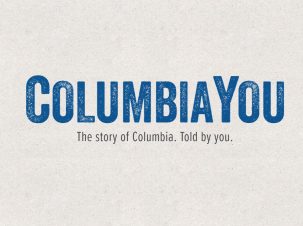Sustainability83
-

Tell the World Your Columbia Sustainability Story
Have a great Columbia sustainability story to tell? ColumbiaYOU is a story-sharing platform that celebrates the rich and diverse Columbia community—in other words, YOU. We’re inviting you—students, alumni, faculty and researchers—to share your sustainability story just in time for Earth Day, April 22.
-

Forest-Friendly Development Can Bolster Peace in Colombia, Paper Says
As Colombia rebuilds following last year’s historic peace deal with Marxist FARC rebels, it has an opening to advance sustainable land development, a new study contends.
-

New Organizations and Networking Opportunities at 2017 All Ivy Fair
The All Ivy Environmental & Sustainable Development Career Fair has earned itself a reputation in the sustainability industry as being the premier place to recruit talented students from the Ivy League universities. This year, the fair attracted 80 employers—many of them attending for the first time—from across the public, private and nonprofit sectors.
-

A State and Local Strategy for Protecting the American Environment
While federal support for new technology and infrastructure would be helpful, there is another approach that can also be effective. We should focus on modernizing our state and local energy systems. By modernizing the energy system we can reduce the costs and environmental impact of our energy use.
-

Faculty Profile: Curtis Probst
“Protecting the environment is very important to me, while at the same time, I believe that the transition to a more sustainable economy also represents a tremendous business opportunity. Sustainable finance is a discipline that captures both these two perspectives.”
-

At Lenfest, Using Carbon to Help Reuse Waste from Steel Production
Lenfest Center researchers are working with a Chinese steel company on a way to treat and reuse waste slag using carbon sequestration technology.
-

Resiliency Strategies to Sustain Businesses and Livelihoods
Sustainability Management alum Krista Eichenbaum (’16) moved from Toronto to attend the MSSM program to better address resiliency challenges in cities. She is currently Project Analyst and Manager at a women-owned engineering consulting firm, specializing in civil engineering, urban planning, and sustainability.
-

Will China Take the Green Mantle From the U.S.?
While President Trump has promised to pull the U.S. out of the Paris climate accord, China’s President Xi Jinxing has vowed to continue to tackle climate change and honor his country’s obligations. Will China become the global leader in combating climate change?
-

Trump’s Unifying Opportunity: Food Security
A sound strategy to secure the nation’s food supply and reduce its vulnerability within and beyond our borders will be a major step towards making America and the world more resilient in the face of increasing uncertainty.

By studying thousands of buildings and analyzing their electricity use, Columbia Climate School Dean Alexis Abramson has been able to uncover ways to significantly cut energy consumption and emissions. Watch the Video: “Engineering a Cooler Future Through Smarter Buildings“
